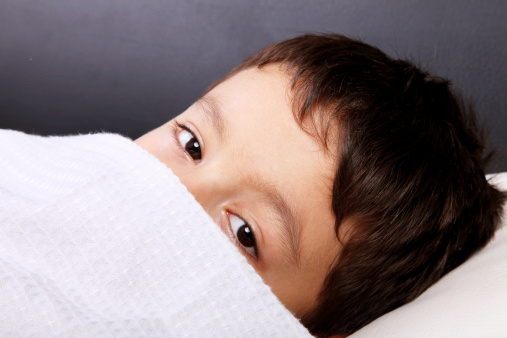
I read with interest the recent blog post on The Doctor’s Tablet by Dr. Iris Lesser on using medication to treat ADHD. I appreciate my colleague’s concern about a backlash to overuse of these drugs. I felt compelled, however, to write about a factor in ADHD treatment in children that is often overlooked. That factor is sleep.
If you review the 2001 American Academy of Pediatrics guidelines, there’s no mention of screening for obstructive sleep apnea in any child with ADHD. In the table of differential diagnoses, sleep disorders are listed under neurologic conditions, but are not obvious.
Sleep disorders (especially sleep apnea) can be a major aggravator of ADHD symptoms. It’s been estimated that one quarter to one third of all children with ADHD may have a treatable sleep-breathing disorder. (Some estimates are even higher.) Even if they don’t officially have sleep apnea, it’s likely that they will have either fragmented sleep or poor sleep hygiene.
Not breathing well and not sleeping well can cause physiologic and brain neurotransmitter alterations that can manifest as symptoms of ADHD.
The question more healthcare professionals need to ask is: Why do hyperactive children get calmer when they are given stimulant medications? Perhaps because they are sleepy. Poor sleep hygiene and insufficient sleep are also at epidemic proportions in this country.
Parents of children with ADHD will tell you that their children have sleep issues. Even if there are obvious issues with poor sleep hygiene, they can be a challenge to correct, especially if the children (or the parents) are firmly set in their ways.
Here are some steps that parents can take to improve their children’s sleep quality:
- Discourage eating or snacking within three to four hours of bedtime. For toddlers, the earlier they eat before bedtime, the better. Having extra stomach juices can predispose children to reflux, leading to more arousals and possibly more obstructed breathing episodes.
- Make sure to have your children sleep the appropriate length of time on a regular basis. Infants need up to 14 hours spread throughout the day. Toddlers need 12 hours (including naps). Preschoolers need 11 hours. School-aged children need 10 to 11 hours. Tweens (ages 9–12) need 10 hours, and teens need 9 hours. Try to keep them from catching up on sleep by sleeping late on weekends. Encourage them to go to bed and wake up at the same time every day.
- Don’t allow any form of media within one to two hours of bedtime. This includes any form of screen time, including computers and smart phones. (Remember that the extra blue light in these screens lowers levels of melatonin, a natural hormone important to sleep cycles.) Remove any screen from within the reach of your child’s bed.
- Make sure that the bedroom is completely dark. Many electronic devices have extra-bright lights and buttons, which are sometimes brighter than most night lights. Here’s how to scope it out. Wait for your children’s eyes to adjust to darkness after turning off the lights and stay in the room. Look for any excessively bright lights. Use black electrical tape to cover these areas.
- If your children have nasal congestion or they snore, talk to your doctor. Sleep can be adversely affected by these conditions, and breathing pauses could be a sign of obstructive sleep apnea. In this case, it’s important to see a sleep physician.
In our field (otorhinolaryngology) we routinely see children experience dramatic behavioral improvements and quality of life after a routine tonsillectomy. A 2006 study found that 28 percent of children undergoing routine tonsillectomy were found to have ADHD by DSM criteria. After tonsillectomy, 50 percent of these kids were cured.
I’m not suggesting that all cases of ADHD are due to sleep disorders. Medications can be important tools in treating ADHD where they are needed. But even if only a fraction of all ADHD cases are related to sleep-disordered breathing, wouldn’t it make sense to do some simple screening before considering intensive behavioral intervention or prescription medications?


Comments on this entry are closed.
Excellent suggestion Dr. Park! Finding the root cause of behaviors is very important before considering medication.